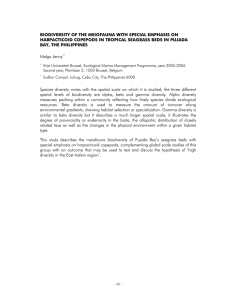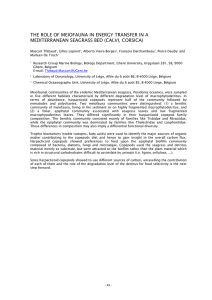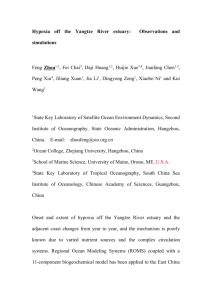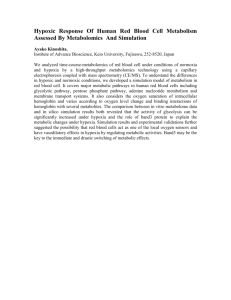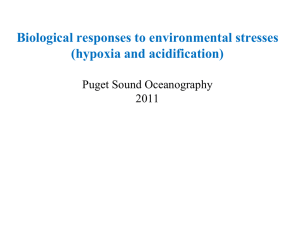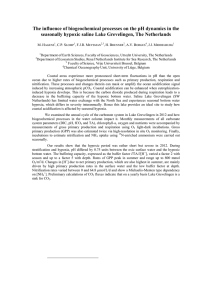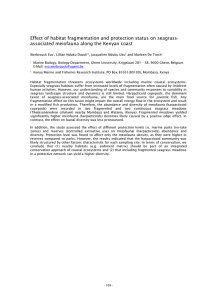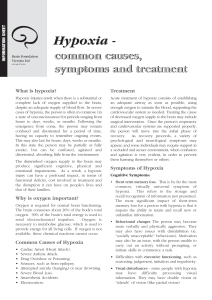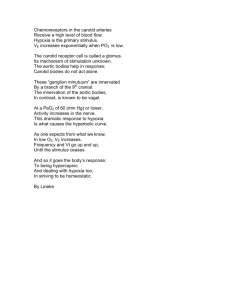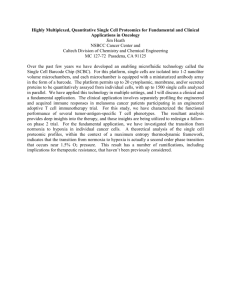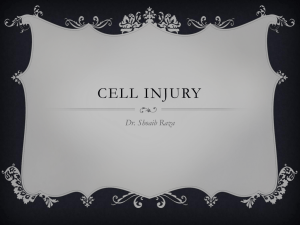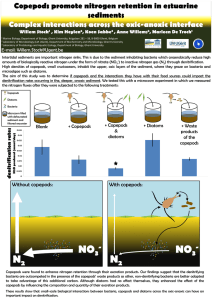What's for dinner? Harpacticoid eating habits in hypoxic environment Giunio, M. Auel, H.
advertisement
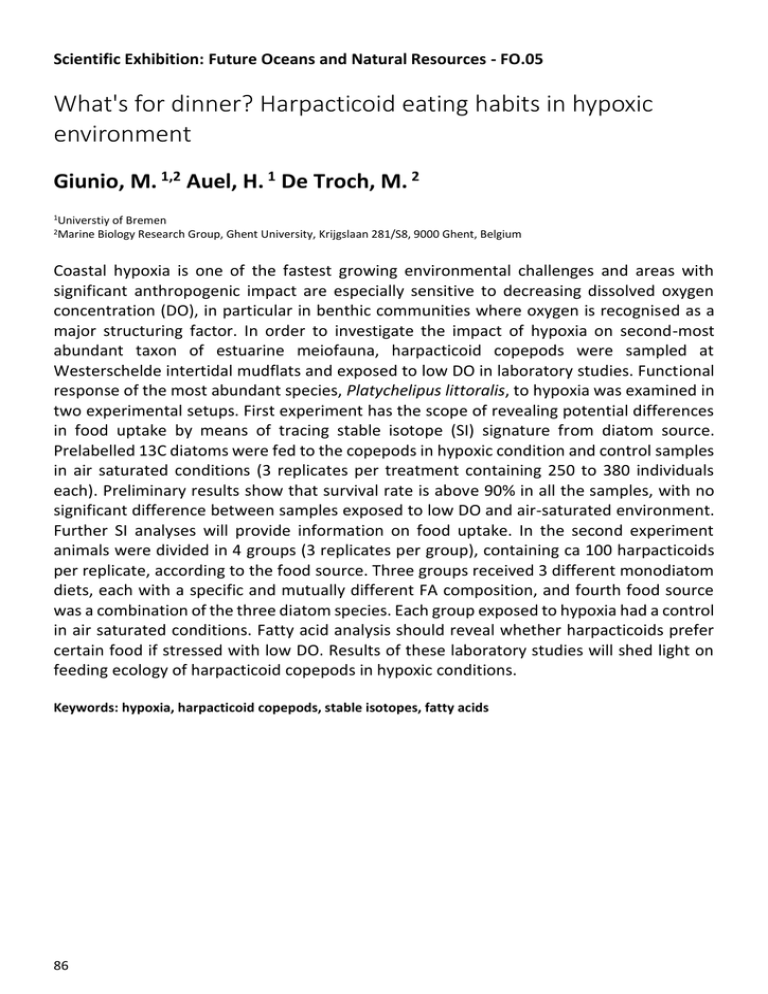
Scientific Exhibition: Future Oceans and Natural Resources - FO.05 What's for dinner? Harpacticoid eating habits in hypoxic environment Giunio, M. 1,2 Auel, H. 1 De Troch, M. 2 1Universtiy 2Marine of Bremen Biology Research Group, Ghent University, Krijgslaan 281/S8, 9000 Ghent, Belgium Coastal hypoxia is one of the fastest growing environmental challenges and areas with significant anthropogenic impact are especially sensitive to decreasing dissolved oxygen concentration (DO), in particular in benthic communities where oxygen is recognised as a major structuring factor. In order to investigate the impact of hypoxia on second-most abundant taxon of estuarine meiofauna, harpacticoid copepods were sampled at Westerschelde intertidal mudflats and exposed to low DO in laboratory studies. Functional response of the most abundant species, Platychelipus littoralis, to hypoxia was examined in two experimental setups. First experiment has the scope of revealing potential differences in food uptake by means of tracing stable isotope (SI) signature from diatom source. Prelabelled 13C diatoms were fed to the copepods in hypoxic condition and control samples in air saturated conditions (3 replicates per treatment containing 250 to 380 individuals each). Preliminary results show that survival rate is above 90% in all the samples, with no significant difference between samples exposed to low DO and air-saturated environment. Further SI analyses will provide information on food uptake. In the second experiment animals were divided in 4 groups (3 replicates per group), containing ca 100 harpacticoids per replicate, according to the food source. Three groups received 3 different monodiatom diets, each with a specific and mutually different FA composition, and fourth food source was a combination of the three diatom species. Each group exposed to hypoxia had a control in air saturated conditions. Fatty acid analysis should reveal whether harpacticoids prefer certain food if stressed with low DO. Results of these laboratory studies will shed light on feeding ecology of harpacticoid copepods in hypoxic conditions. Keywords: hypoxia, harpacticoid copepods, stable isotopes, fatty acids 86
